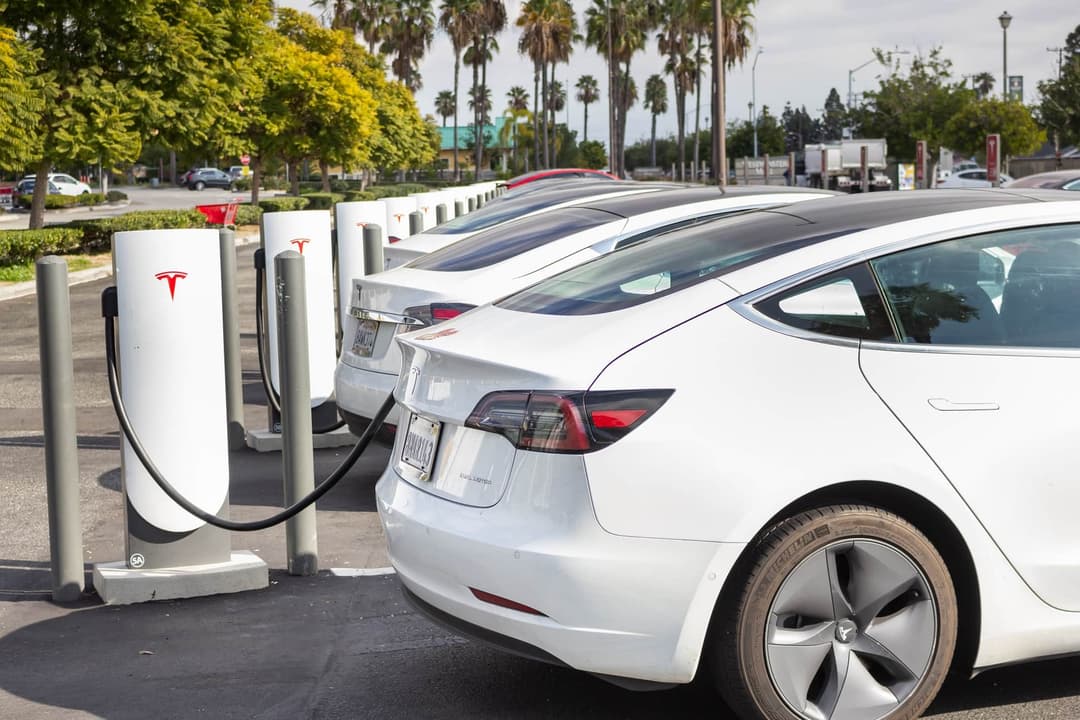The recent passing of the Electric Car Discount Bill included one key law change that will make buying an electric car cheaper than ever - the FBT exemption.
Whether you’re a small business owner with one vehicle or a listed company with a large fleet, the removal of FBT for electric cars is going to save you plenty of money, and more. This guide will cover the following key topics;
🔑 A Summary of FBT;
💰 A worked example of potential savings; and
🏢 Implications for small businesses, fleets and novated leases.
EDITOR’S NOTE: This is an informative guide only. We recommend you seek advice from a qualified accountant before you make financial decisions.
Business Fleets Drive Car Sales
According to a RACE 2030 report, business fleets (government and company) comprise 40 per cent of light vehicle sales. When it comes to EV’s however, business fleets are underrepresented.
Of the 600,000 vehicles sold in 2020, only 488 (0.08%) were electric. This is ten times less than the broader market where EVs comprised 0.8% of total sales.
So why are business fleets so frastically behind in terms of EV uptake? The reasons are nuanced but businesses are primarily driven by financial factors and until recently, the economics of electric cars didn’t stack up.
Today however a confluence of market forces are pushing business fleets towards electrification. Firstly, electric cars have likely crossed cost parity (on a total cost of ownership basis) versus a petrol equivalent. Secondly, there has never been more pressure on large businesses and the government to invest in fulfilling their ESG obligations, de-carbonisation being one of the key focus areas.
The good news is electrification can substantially reduce transport emissions and the removal of the FBT will substantially improve the economics of EVs to a point where it is not debatable. Similar changes were introduced overseas (such as the UK) to great effect and saw a surge in business uptake of EVs.
A Summary on Fringe Benefits Tax (FBT)
If your business has cars on its books, there is a good chance FBT is being paid on them. With the exception of some vehicles, the vast majority of cars are subject to FBT.
Fringe benefits tax (FBT) is a tax that employers pay on benefits paid to an employee in addition to their salary or wages. In the context of cars, there are two main instances where vehicles are supplied to employees:
- Standard company fleet vehicles are provided to employees for work purposes e.g. sales representatives of businesses.
- Novated lease/salary sacrifice arrangement whereby an employer pays for the employee's car lease and running costs through their salary.
According to the ATO:
"For fringe benefits tax (FBT) purposes, an employee includes a:
- current, future or past employee
- director of a company
- beneficiary of a trust who works in the business."
FBT seeks to tax the personal benefit received by an employee arising from the ‘private use’ of the car. For example, a car garaged at an employee’s home is treated as being available for private use, and is therefore subject to FBT.
The FBT calculation may vary slightly depending on the use case. The ATO provides guidance on the calculation methodology for different use cases here.
How the FBT Exemption will save you Money
From 1 July 2022, Electric Cars will be exempt from FBT. This exemption applies to all-electric cars below the luxury car tax threshold for fuel-efficient vehicles ($84,916 in 2022-23). This will be reviewed three years from its inception.
This will not only save you money, but also simplify the administration (log book) and the accounting process. You can recognise the full expense of an electric car without the underlying FBT obligation attached.
Based on a $50,000 car value, a business stands to save up to $9,777 annually or $48.885 over five years from not having to pay FBT.
Over five years, due to potential savings from FBT, you could end up saving up to $39,455 by owning a Tesla Model 3 over a Toyota Camry Hybrid.
Small Businesses Save on Record Keeping
As a small business owner, it is common practice to purchase a car through the business. This may be provided to employees or used by the Directors. Depending on how the car is used, it may be subject to FBT. With the introduction of the FBT exemption, you now no longer need to worry about keeping a log book to justify to the ATO the level of business/private use.
How Electrifying your Fleet can Positively Contribute to ESG

Many large organisations have set strong targets to reach net zero emissions by 2030 but have not developed a detailed road map to get there. These environmental targets incorporated as part of the broader Environmental, Social and Governance (ESG) strategy often needs to be balanced with the business case.
Transitioning to electric cars presents an opportunity to substantially reduce transport carbon emissions. The emissions reduction from an electric car can range from 30% to 100%, depending on the source of the energy. For example, if charged by onsite solar this could be 100% if charged from the grid 30% to 80% (depending on the state).
In addition to being environmentally superior, the FBT exemption now substantially improves the comparative economics of an electric car versus a petrol equivalent. For example, on a $50,000 vehicle potential savings are $9,777 per annum. If you’ve got a fleet of 1000, that equates to an annual savings of $9,777,000 per annum.
Electric cars now make business sense by the way of cost savings and minimising their environmental impact.
Novated Lease Implications
Novated leases are a popular option on many staff benefit programs. While they have the potential to provide savings for employees, the financial case has not always been straight-forward. There are many instances where employees would be better off with an outright purchase.
With the abolishment of FBT for electric cars, the financial case will most certainly be in favour of a novated lease compared to other options (we recommend you seek advice from a qualified accountant before you make this decision). It will no longer be a matter of ‘if’ there will be savings but ‘how much’ those savings will be. Read more on how electric cars work under a novated lease in our comprehensive Novated Lease guide.
What existing EV incentives are Businesses Eligible for?
Businesses are eligible for several state-based EV incentives. Refer to our state-by-state guide on EV Incentives for more information on what subsidies/grants/exemptions you may be eligible for.
Which EVs are eligible for the Electric Car Discount?
As noted earlier only electric cars that fall under the luxury car tax (LCT) threshold of $84,916 for 2022-23 will be eligible. The LCT threshold typically includes; options, accessories, dealer delivery, and GST.
DISCLAIMER: zecar is not a financial adviser. You should consider seeking independent legal, financial, taxation or other advice to check how the website information relates to your unique circumstances.
zecar is not liable for any loss caused, whether due to negligence or otherwise arising from the use of, or reliance on, the information provided directly or indirectly, by use of this website.
About the author
Stay up to date with the latest EV news
- Get the latest news and update
- New EV model releases
- Get money savings-deal

